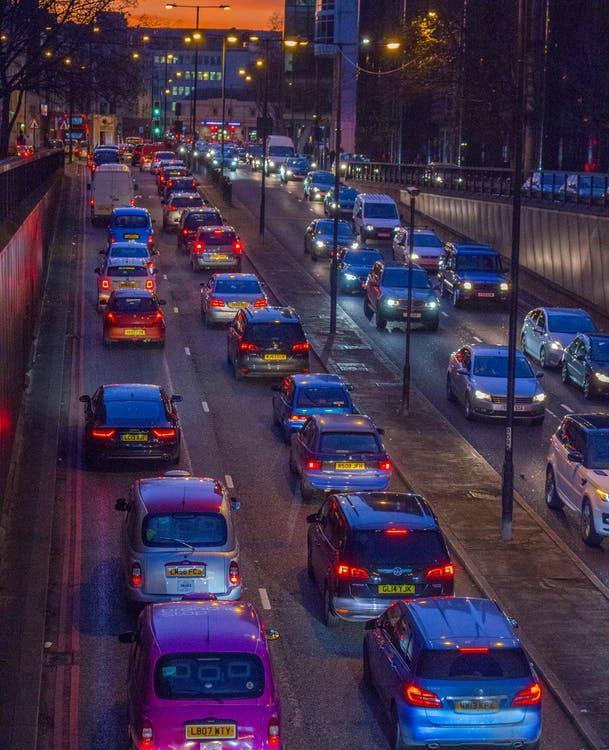- BY SUSAN MILLER
Columbus, Ohio, the winner of the Transportation Department’s 2016 Smart City Challenge, unveiled three Smart Columbus projects that will pilot new mobility technology: smart mobility hubs, connected vehicles and the re-commissioned Linden LEAP.
“Columbus won the Smart City Challenge because we had the vision and ambition to try new mobility technologies in a neighborhood to address the daily challenges residents face,” Mayor Andrew Ginther said in the July 28 announcement. “Today, that vision comes to life. These mobility pilots in Linden will bring food to neighbors in need, connect residents to reliable and affordable mobility options, and help vehicles travel through the neighborhood more safely.”
Smart mobility hubs have been created to aggregate multi-modal first mile/last mile solutions at accessible locations to make traveling easier and more affordable. At the center of each hub is an IKE Smart City interactive digital kiosk that provides free Wi-Fi and access to Pivot, Central Ohio’s multi-modal trip planning application that integrates end-to-end trip planning, booking, electronic ticketing and payment services across public and private modes of transportation. Six hubs are now open.
To improve the performance of connected vehicle infrastructure, the Smart Columbus program is calling for 500 community volunteers to install connected vehicle technology in their personal vehicles to provide real-time safety alerts in the city’s connected vehicle environment and collect non-personally-identifiable data to serve as a secure resource for other interested smart cities and entrepreneurs.
On-board units will allow vehicles to exchange data and receive in-car alerts like blind spot detection or rear end collision warning. The units also allow vehicles to communicate with traffic signals and other roadway infrastructure to provide in-car alerts that give drivers advanced warning of potential hazards or safety concerns ahead. Traffic managers will be able to adjust signal timing to prioritize connected buses and emergency vehicles, and they can mobilize other responses like snow and salt trucks based on real-time information on road conditions relayed by the roadway units.
Private vehicles will be matched by 500-750 public vehicles that will include vehicles from city and county fleets, fire and police department, public transit and freight trucks.
The Linden LEAP, an all-electric self-driving shuttle dedicated to providing first-mile, last-mile mobility challenge in Columbus’ Linden neighborhood, is being recommissioned to transport pre-packaged food boxes to residents experiencing food insecurity.
The pilots will run through March 2021, with reporting published to the U.S. Transportation Department and to the Smart Columbus website in May 2021. Data captured by the pilots will be ingested into the Smart Columbus Operating System to inform future Smart City work locally and beyond, officials said, but it will be free of personally identifiable information.
The Smart Columbus Operating System is an open, dynamic data platform that serves as the backbone to smart city projects and can support machine learning and predictive models to drive better trip optimization.
AI-powered traffic management
Tennessee is adding artificial intelligence to the 28-mile-long I-24 Smart Corridor between Nashville and Murfreesboro. In June, the Federal Highway Administration awarded a $2.6 million grant to the Tennessee Department of Transportation for its Artificial Intelligence-Powered Decision Support Tools for Integrated Corridor Management project, which aims to increase travel time reliability and optimize traffic patterns.
Vanderbilt University, a partner in the project, is developing the DSS tools to coordinate ramp meters (traffic lights before entering a highway), and highway traffic signals and set dynamic speed limits that facilitate less overall traffic. DSS will address traffic incidents and by delivering appropriate lane guidance to drivers near the accident to mitigate secondary collisions. The system will pull data from radar, CCTV and Bluetooth readers along I-24.
Information highway
Arizona is considering running high-capacity fiber-optic cable along I-19 in Southern Arizona and along I-17 and I-40, the state Department of Transportation announced in a request for information. Besides providing communications infrastructure for overhead message boards, traffic cameras, weather stations and wrong-way driving detection technology, the project would also enable development of connected and automated vehicles. Additionally, the project would create more affordable opportunities for wired and wireless broadband connectivity in rural communities near the highways.
Drivers in Phoenix, meanwhile, can now tap into an interactive dashboard created by the City of Phoenix Street Transportation Department the shows the real-time status of roadway maintenance projects, including filling potholes, repaving areas and crack sealing, filterable by district area, status type and project type.
Link: https://gcn.com/articles/2020/07/30/smart-transportation.aspx
Source: https://gcn.com
